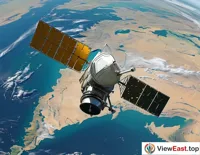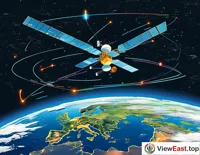






In the vast expanse of the cosmos, a new star is slowly rising, named the BRICS Remote Sensing Satellite Constellation. This international cooperation project, involving China, Russia, India, Brazil, and South Africa, is not only a milestone in China's space international cooperation but also a new chapter in global space collaboration.
The story of the BRICS Remote Sensing Satellite Constellation is like an epic of cooperation spanning the stars. It began with an initiative from the China National Space Administration in 2015 and, after six years of meticulous preparation and cooperation, officially signed a cooperation agreement in August 2021, marking the official establishment of the constellation. Comprised of existing remote sensing satellites from BRICS countries, including China's Gaofen-6 and Resource-3 02 satellites, the China-Brazil Earth Resources Satellite 04, one satellite from Russia's Elder series, and India's Resourcesat-2 and Resourcesat-2A, these satellites are like pearls woven into a network of Earth observation, providing data support for environmental protection, disaster prevention and mitigation, and climate change response.
The cooperation in this project is not just a union of technology but also an exchange of culture and philosophy. It reflects China's open attitude and spirit of cooperation, demonstrating China's active role in promoting the construction of a community with a shared future for mankind. As Zhang Kejian, the director of the China National Space Administration, said, the cooperation among BRICS space agencies will guide the remote sensing satellite constellation to better serve the economic and social development of BRICS countries, promoting higher-level cooperation among BRICS space agencies in various fields, achieving efficient data sharing, and effective utilization.
The achievements of the BRICS Remote Sensing Satellite Constellation are a microcosm of China's space international cooperation. China's space endeavors have always adhered to the principles of equality and mutual benefit, peaceful utilization, and common development, conducting various forms of exchanges and cooperation with multiple countries and international organizations. China has signed more than 150 intergovernmental space cooperation agreements with over 50 countries and international organizations, jointly advancing the common progress of humanity's space endeavors.